Near the Old Town of Mostar, Bosnia & Herzegovina, lies a concrete shell of a building. Today, it is completely abandoned, with no sign that it was once a thriving, modern, Croat bank, with a shiny glass facade and eight floors full of workers and customers. Now the building is full mostly of broken glass and graffiti.
For a brief period during the tragic conflict in the Balkans during the 90s, this structure became a weapon, the the Mostar sniper tower, with its perfect, elevated views onto the streets of the Bosniak-controlled eastern Mostar.
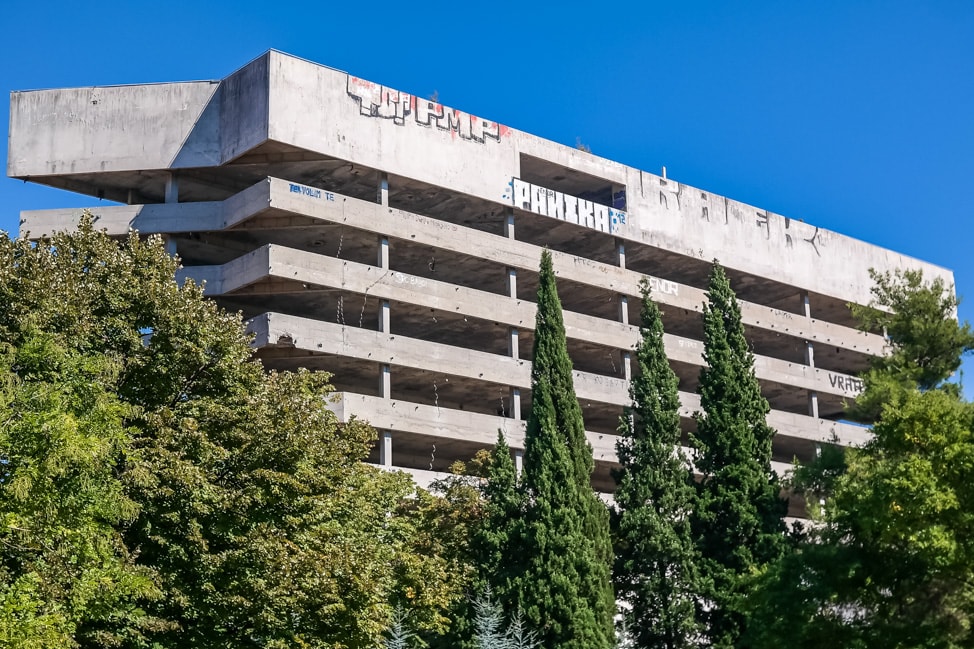
Mostar Sniper Tower
Having spent the better part of a month in Balkans, we’ve learned so much about this conflict, one that I remember vividly. We’ve seen the damage and destruction in person, still apparent after more than twenty years, and talked to locals about their own struggles during the crisis.
Few places were hit as hard as Mostar, first encircled and shelled by the Yugoslav People’s Army after Bosnia and Herzegovina declared independence in 1991, then the site of a violent struggle between the Bosniaks and the Bosnian Croats through 1993.
The bank building, located in the geographical center of the city, along the main boulevard that would become the front line between the opposing forces, was taken over and used as a strategic military position.
It became the Mostar sniper tower.
For most of 1993-94, Bosniaks (the community of Bosnian Muslims) in eastern Mostar were under constant threat of sniper fire from the Croats. It was said that if you could see a building on the western side of Mostar, across the Neretva River, a sniper could see you. Residents constructed sniper warning signs in the dangerous areas, but they were often ignored because people had to get to UN-supplied water and food.
I think that back in the early 1990s, my biggest concern was making new friends in middle school, while children my same age in Mostar were camping out in basements, and being bombarded by morter shells and sniper fire, for almost three years.
The struggle comes to life when exploring Mostar in person, when even today many homes are covered in pock-marks from bullets and numerous buildings are still partially destroyed and abandoned.
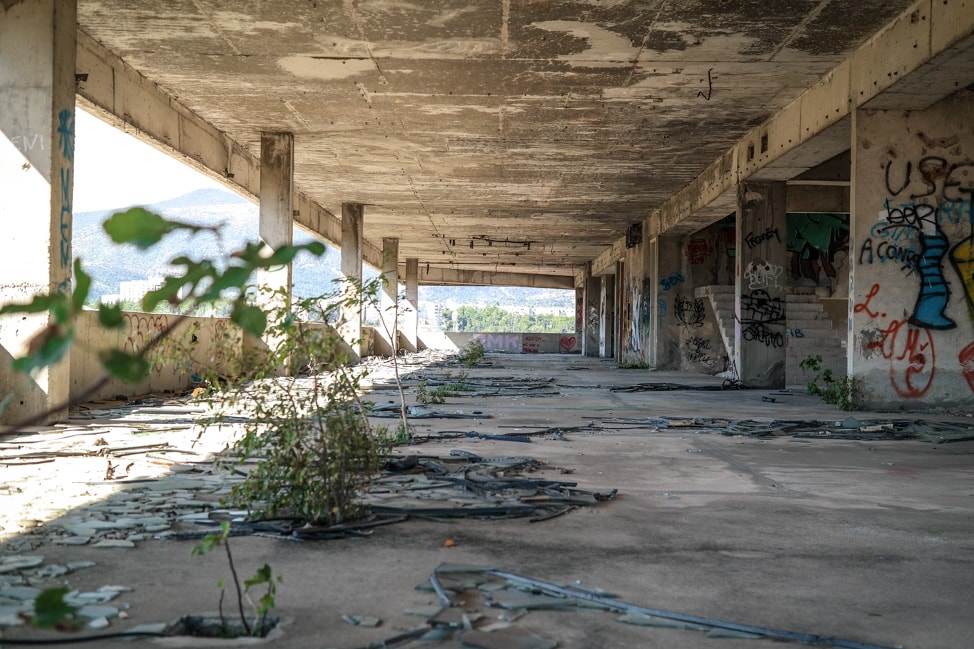
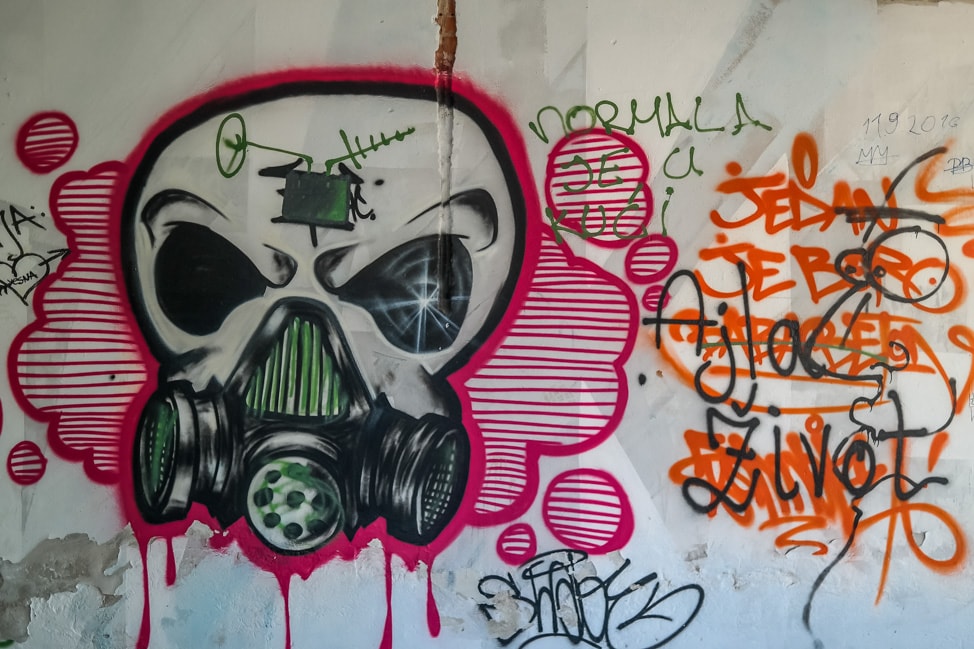
When we arrived in Mostar, we heard about Mostar sniper tower and decided that it was an essential addition to our itinerary. There is no plaque, no museum, no acknowledgement about what occurred in this building in the early 1990s.
Instead, it has been left to rot.
Quick disclaimer: technically, we trespassed into this building, and of course, we do not advocate for breaking any laws when visiting a city. If you decide to see it, avoid going at night, for safety reasons.
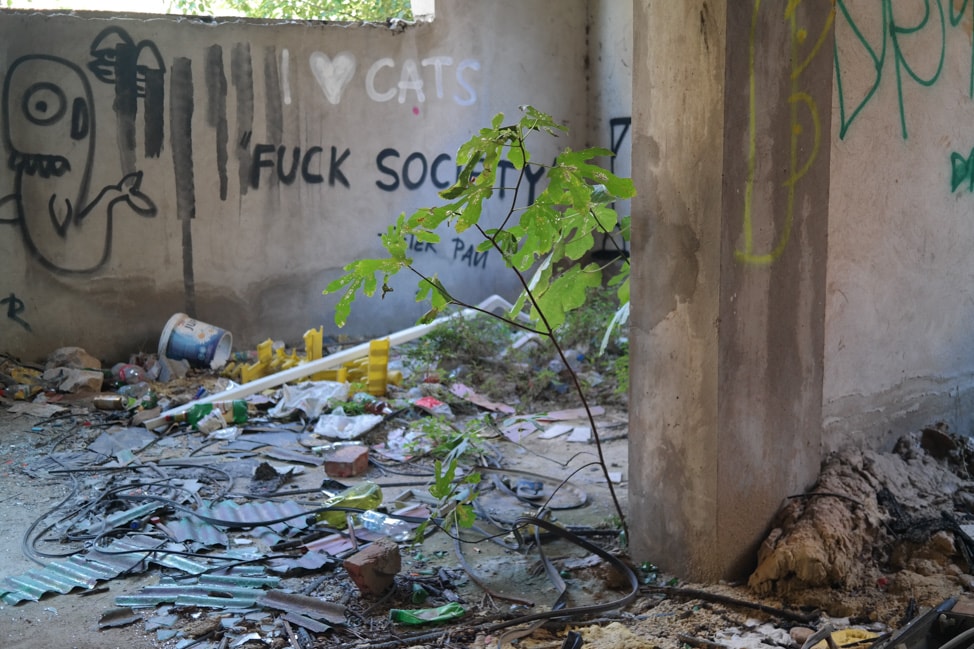
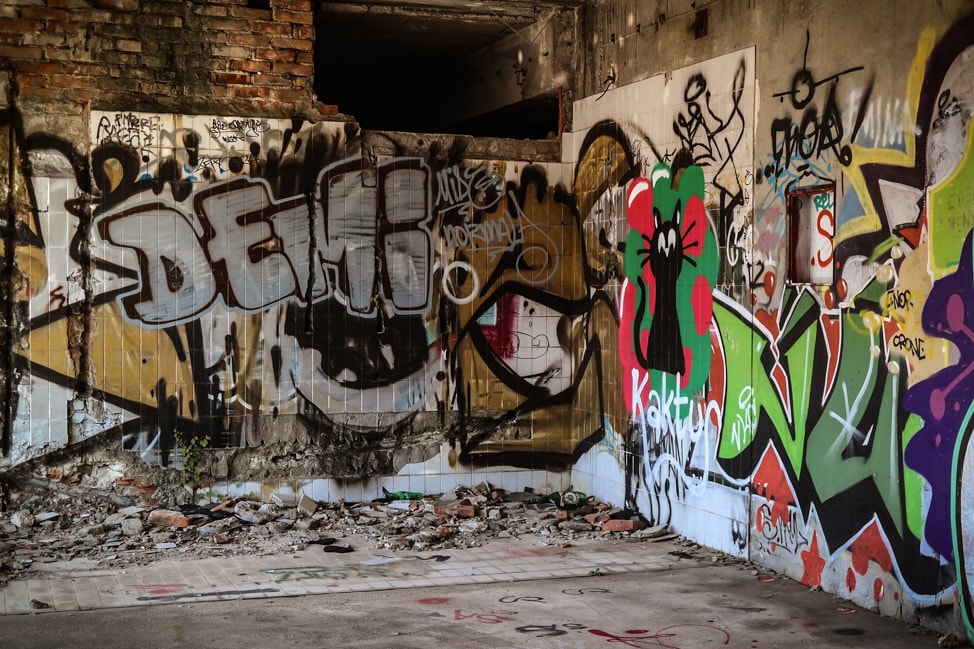
There is no front door, because the former main entrance has been walled off. In order to enter, we had to head around back, hopping over a cement wall in the rear of the building (someone has piled up rocks to make the climb a little easier).
The ground floor, and the many floors above, are covered in broken glass, bottles, paraphanalia, and graffiti. It was eerily quiet, completely empty except for us. We whispered and crunched over piles of debris, our steps echoing in empty rooms and down corridors.
And then we started climbing, the main stairwell now completely open to the outside world.
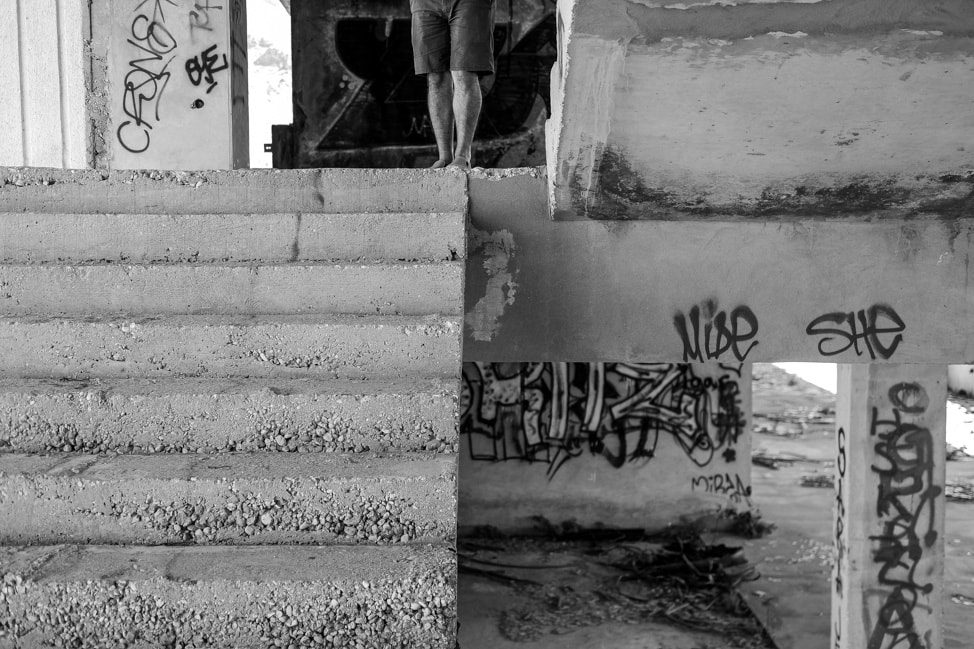
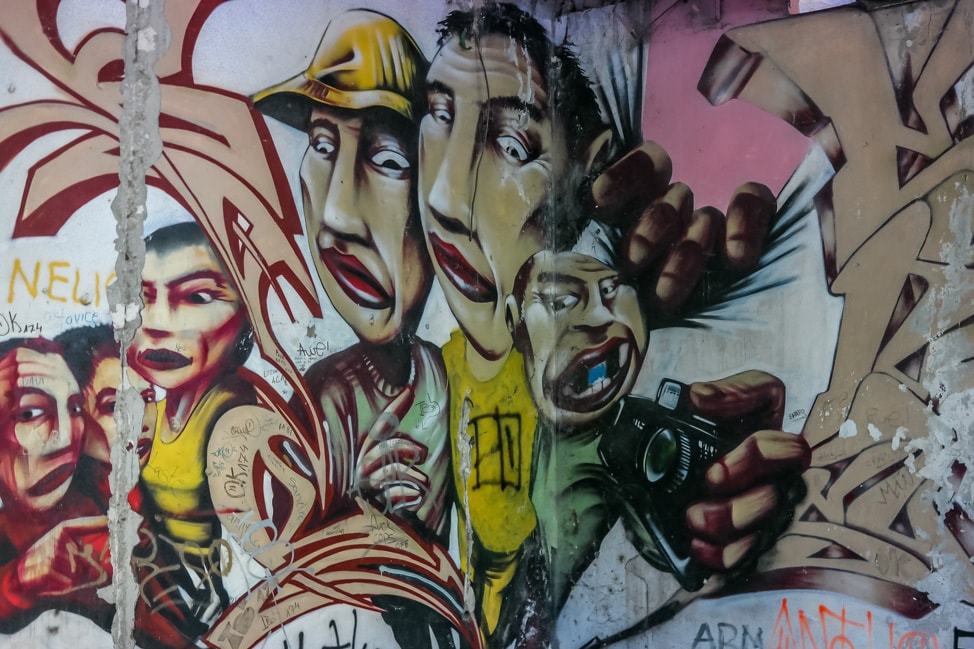
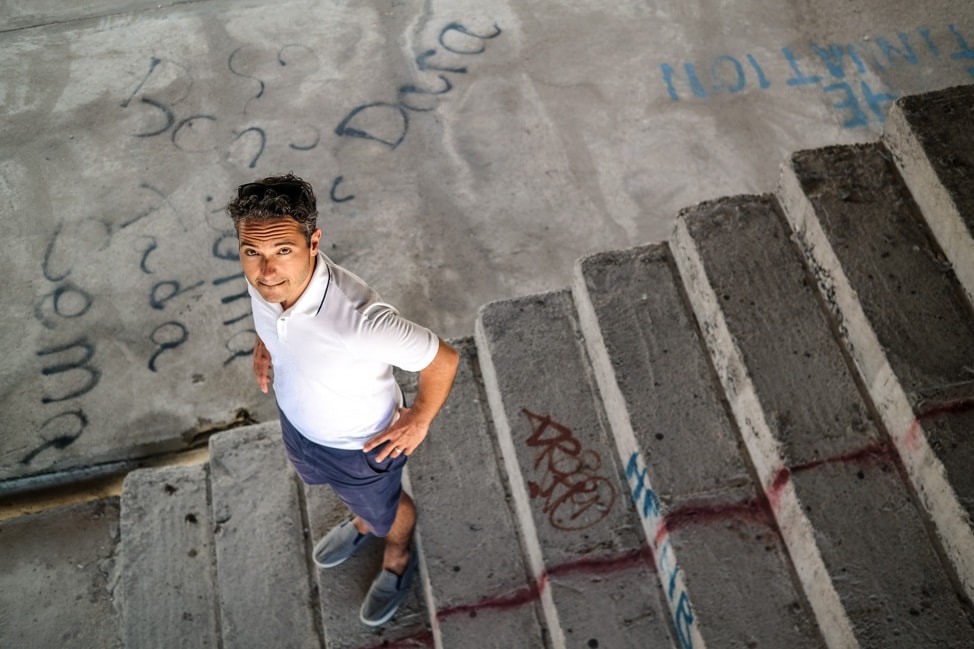
We reached the seventh floor, and took a glance out from the jagged corner of the building, overlooking eastern Mostar, the Old Town visible just a few blocks away. Now all that remains is garbage and trash, but once soldiers sat day and night, looking for any moving target across the river.
The view is incredible, which unfortunately, is exactly the reason it was used in such a deadly way.
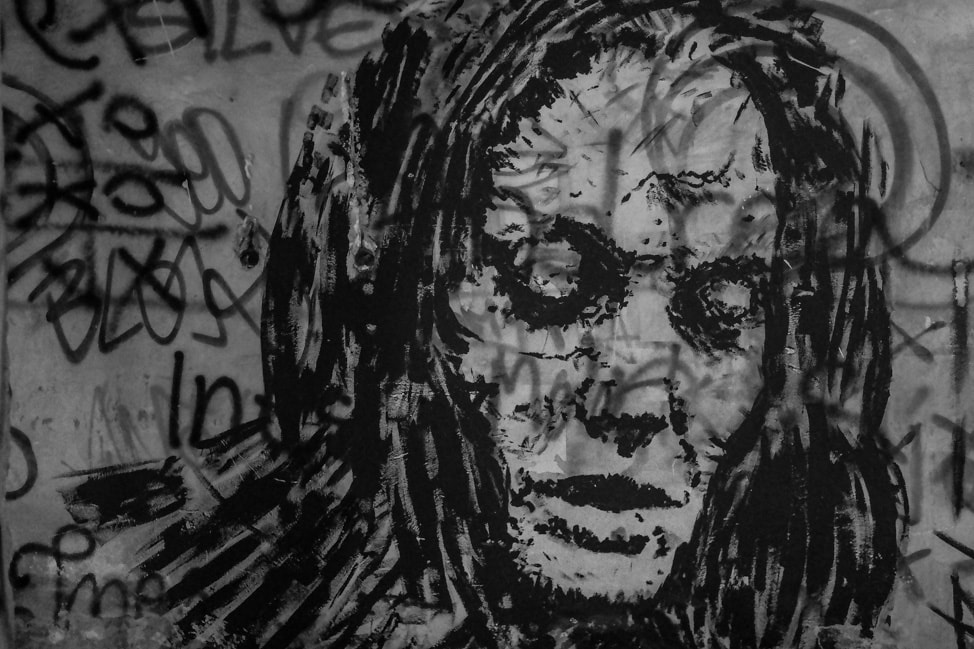
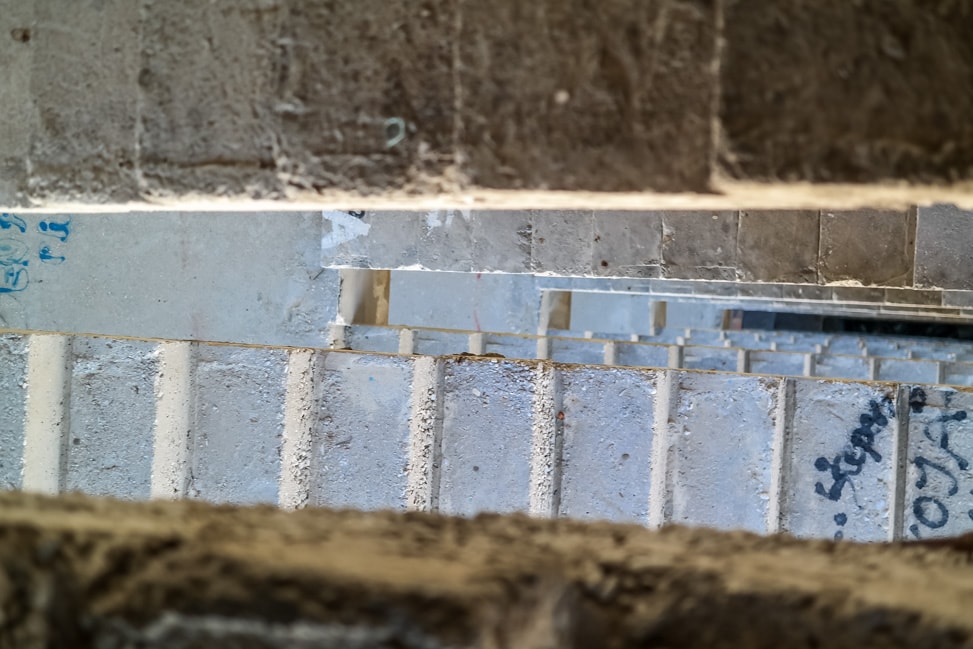
Julie and I always talk about how seeing a place in person always makes its history more vivid and real. Seeing the Colosseum and the Roman Forum, for instance, is more impactful than just reading about Roman history in a book.
The same applies to Mostar and the Balkans. Reading about the Balkan conflict is a challenge in and of itself due to the complex history of the region and subtle intricacies of the war. Being here, seeing the sites of the siege in person, and talking to people who experienced violence firsthand, has helped us understand the history so much better.
The struggle becomes real as you walk by building after building riddled with bullet holes.
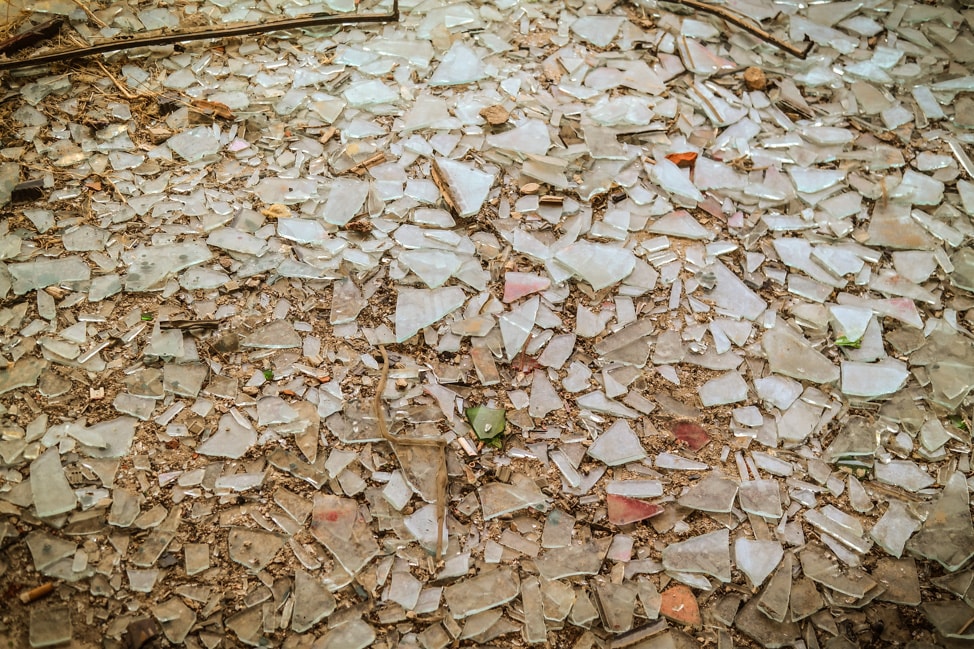
Our visit to the sniper tower in Mostar was both poignant and fascinating.
No one knows how much longer the building will stand there. There are no current plans to revitalize this corner, due to ongoing local conflicts about how best to memorialize the war. In the not too distant future, this building may be a thing of the past.
But for now, in the small city of Mostar, the sniper tower stands as a constant reminder of a divisive and violent war.
Have you visiting the Mostar sniper tower, or any other poignant reminder of a recent conflict? How was your experience?
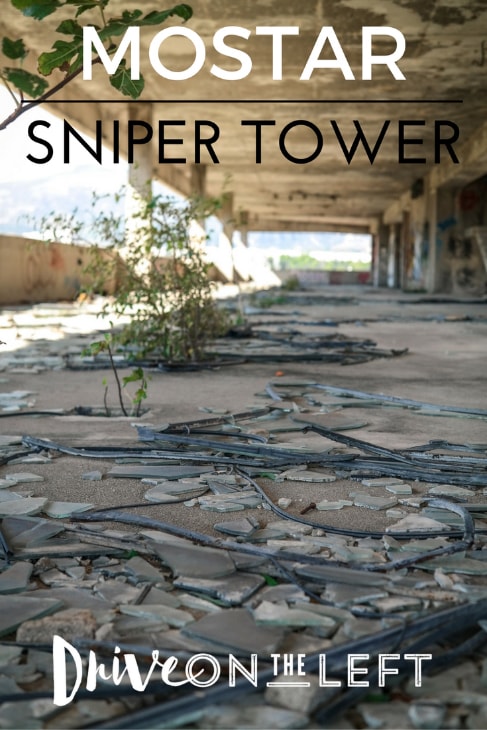

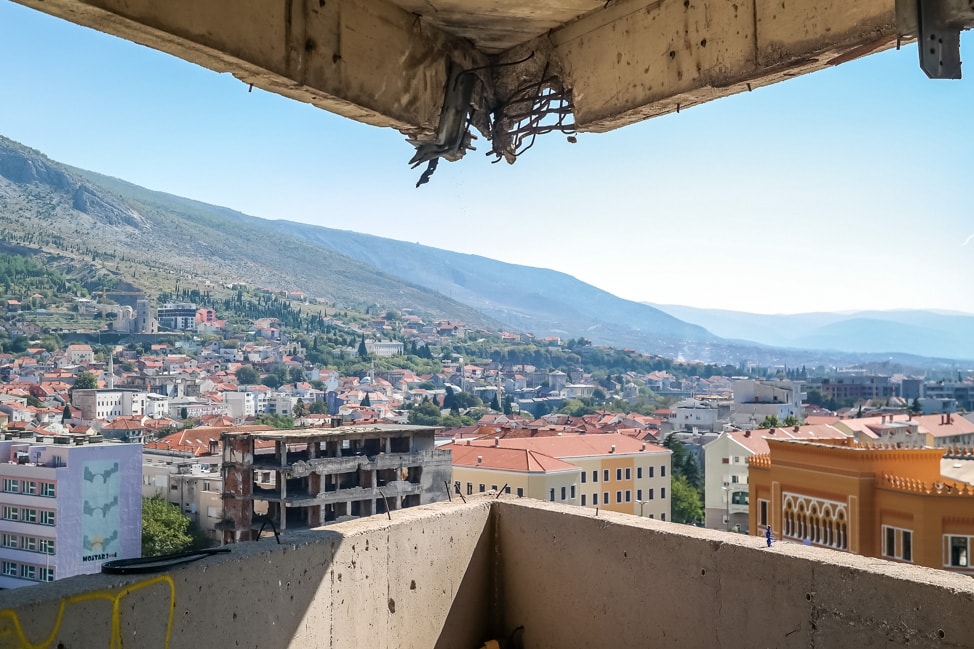










Every time I realize how recent the conflict in those countries was it gives me goosebumps. Visiting the tower must’ve been intense, especially when you see the view and you can’t enjoy it because you know the purpose of the building…
Dominique recently posted…Jeju Island – A Handful of Natural Sights
It’s so scary to think about how others must live through these conflicts. I would have also been in school while children were hiding in their basements.
That must have been so eerie walking around there just the two of you. It definitely makes the history feel more real, being there in person. It’s so hard to believe that something like that happened in our lifetime, just a few decades ago 🙁
I can’t help but be drawn to the images in this post – it looks so eery yet beautiful. Definitely now added to the bucket list!
Danielle Ditzian recently posted…More Ways to Earn Money on the Road
One of the most interesting aspects of a trip to the Balkans is learning about the war and the multiple conflicts the region witnessed. Tragic yet very important history.
I stayed a couple of days in Mostar and didn’t visit the sniper tower but visited similar places in Sarajevo.
Very sad to think about. (but you took some great photos of it!)
Thanks for sharing your experience and thoughts…
Every time we visit a city or country that has suffer a tragic war, I always find myself wondering how little we understand about what really happened there and how people suffered. For me the Sniper Tower in Mostar is the type of place everybody should visit, to understand that we need to shape a better and peaceful future.
Cheers and happy travels!
Nat
Natalie Deduck recently posted…How Much Does it Cost to Travel in Australia?
Natalie, I totally agree. I actually learned about this conflict in school and I barely remember it. There is definitely something ‘important’ about seeing it in person that really can’t be replicated. Plus, we now both understand what happened here sooooo much better. Cheers to you!
A very interesting place to visit. I love the street art in there!
I keep seeing beautiful pics of Mostar but this is something I have not seen before. The view is indeed great – but the building a reminder of the sad history.
I’ve been to Mostar, but I’ve only really seen the old village and the main bridge that they jump off. I saw more relics like this in Sarajevo and the capital of Bosnia. It’s a startling reminder..
We did a tour in Mostar that brought us to a few of the abandoned parts of the city. In Sarajevo, by contrast, we were mostly in the Old Town and areas less obviously in ruins than in Mostar. Just goes to show that the evidence really exists everywhere if you know where to look!
I really don’t know as much as I should about this region and the conflicts it has faced. It’s interesting to find such beauty in a place you wouldn’t expect it. Thanks for sharing more of Mostar’s story.
Megan recently posted…A Year of Checking Off Goals and Turning 30
We were just next door in Serbia and inland Croatia while y’all were starting your trip, and the architecture looked SO similar to this. Also, I like a good rebel; we’d get along well 😉
Kristin @ Camels & Chocolate recently posted…A Horse is a Horse: How to Do Keeneland in Lexington
Breaking into this building was the best thing I’ve ever done. Weird?